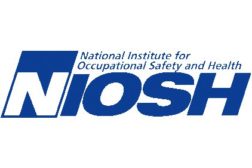Workplace Health
NIOSH intros affiliate program for Total Worker Health iniative
NASA one of the first members
July 11, 2014
Is your desk a hazardous location?
Here are tips for making your workspace ergo-friendly
July 11, 2014
How Americans can get a better return on their health care investments
"Americans deserve better health, particularly given the amount of money we spend on health care"
July 11, 2014
TOP CEOS, AHA launch initiative to shift the culture of health in the workplace
U.S. workers think they're healthier than they really are
July 9, 2014
“Problem” drug users in E.R. rooms drive up health care costs
Identifying, intervening may help control effects
July 8, 2014
Never miss the latest news and trends driving the safety industry
eNewsletter | Website | eMagazine
JOIN TODAYCopyright ©2024. All Rights Reserved BNP Media.
Design, CMS, Hosting & Web Development :: ePublishing









